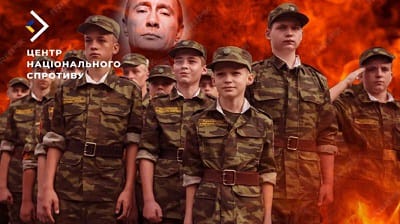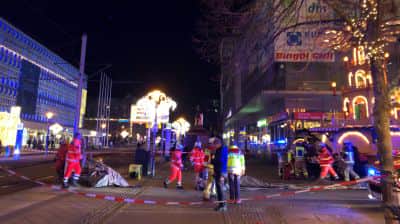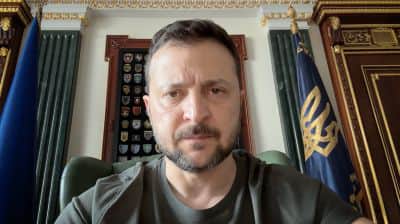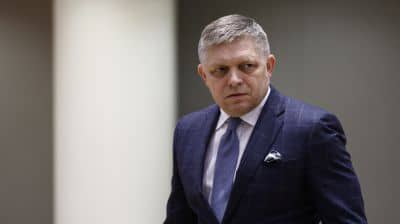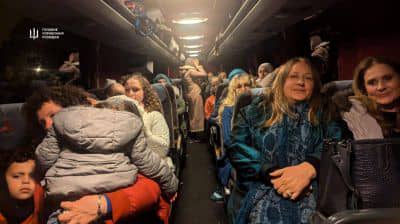Putin imposes martial law on annexed territories of Ukraine
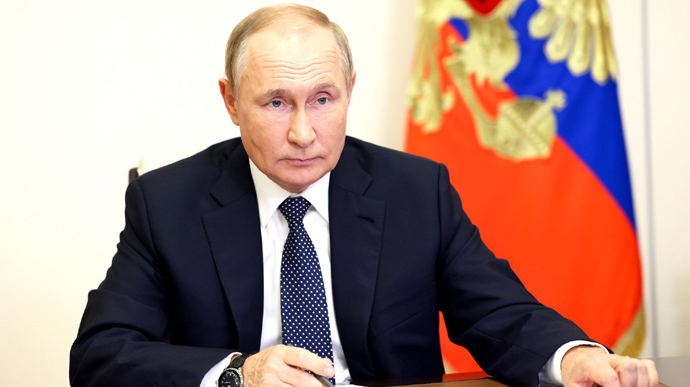
IRYNA BALACHUK – WEDNESDAY, 19 OCTOBER 2022, 14:51
Russian President Vladimir Putin announced the decision to introduce martial law in the annexed parts of Ukrainian oblasts of Kherson, Zaporizhzhia, Luhansk and Donetsk.
Source: website of the Kremlin; Russian state-owned news outlet RIA Novosti, citing Putin’s statements during a meeting of the Security Council of the Russian Federation; Reuters
Quote from Putin: "I signed the decree on the introduction of martial law in these four parts of the Russian Federation. It will immediately be sent to the Federation Council [the upper house of the Russian parliament. The State Duma [the lower house] has also been informed of the decision adopted."
Details: Putin explained that Ukraine declared martial law in Donetsk, Luhansk, Kherson and Zaporizhzhia oblasts prior to the Russian occupation. He claimed that "now we must formalise it according to the Russian legislation."
Putin's decree was immediately published on the Kremlin's website.

In another decree, Putin introduced a medium-level response mode in the territories of occupied Crimea, Krasnodar Krai, the Belgorod, Bryiansk, Voronezh, Kursk and Rostov regions and the city of Sevastopol.
Under this decree, the highest-ranking officials of these territories have the following rights:
- to strengthen the protection of public order, the protection of the military, important state and special facilities, facilities that are critical to the life of the population, the functioning of transport and communications, energy facilities, etc.;
- to introduce a special mode of operation for facilities that ensure the functioning of transport, communications, and energy facilities, as well as things that pose an increased danger to human life and health and the natural environment;
- to temporarily move residents to safe areas;
- to introduce and enforce a special regime of entry into and exit from the territory, as well as restrictions on freedom of movement within it;
- to restrict the movement of vehicles and inspect them;
- to introduce controls over operations to ensure the functioning of transport and communications, printing houses, computer centres and automated systems, and the use of their work for defence needs.
Putin also decreed that other territories that are part of the Central Federal District and the Southern Federal District of Russia be placed on high alert mode.
The executive authorities of these territories have:
- to strengthen the protection of public order and critical facilities, energy, transport, communications, etc.;
- to introduce a special mode of operation for these facilities;
- to restrict the movement of vehicles and inspect them;
- to introduce controls over the operation to ensure the functioning of transport, communications, printing houses, computer centres and automated systems, and the use of their work for defence needs.
In all other territories of the Russian Federation, Putin introduced a basic readiness mode.
The authorities of these regions should strengthen the protection of public order and important facilities and introduce a special mode of operation for them.
The regional authorities of Russia are also required to create operational headquarters of the constituent entities of the Russian Federation, which will include representatives of the Russian Defence Ministry, heads of the relevant territorial bodies of the Ministry of Internal Affairs, the Ministry of Civil Defence, Emergency Situations and Disaster Response, the Federal Security Service (FSB), troops of the Federal Service of the National Guard of the Russian Federation, as well as representatives of organisations and public authorities of the relevant entities within the Russian Federation.
Putin ruled that the decisions taken by such operational headquarters are binding on the territory of the relevant entity within the Russian Federation.
At the Security Council meeting, Putin also gave instructions to create a special Coordination Council headed by Prime Minister Mikhail Mishustin.
The Coordination Council will also include deputy prime ministers, representatives of law enforcement agencies, the socio-economic block of the government, the presidential administration, and the State Council [an advisory body to the head of state - ed.]. According to Putin, this arrangement will ensure "close cooperation with all regions of the country."
Journalists fight on their own frontline. Support Ukrainska Pravda or become our patron!
